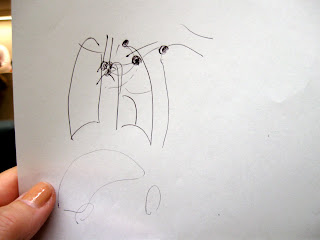



1. 墓場 (はかば)
友達と私は 京都 を 見物した。 ゴ ー ル デ ン ウ ィ ー ク だった。
ゆう名な墓場 (はかば)へ 行った。 何百という小さい墓を 見た。
「サンドラさん、 墓場にいると気分が悪いですか。」 と 洋子さん は
言いた。
「いいえ気分は悪くありません。 小さい石が ある特別な 所ですから。」と 私は 言いました。しかし、私が説明しようとすると、 気分がわるくなった。
二日のち、 ほかの寺にある墓場を見に 行った。 家族が 12人が あそこで ねむっている。
洋子の主人は 私を見ていた。 彼は私が墓場で気分がわるくなったのにきずいでした。
2。 親友
10年間前は 彼らと親友になった。日本人の家族だった。 私はかれらの子供が大きくなるのを見てきました。わたしたちはいっしょに山のぼりをしました。一緒に休みを過ごしました。
今年のゴ ー ル デ ン ウ ィ ー ク では死の話をしませんでした。
私は 元気だったので、 薬を 忘れてきました。
洋子さんは 「一日に、 いくつ薬を のむの」と 言いました。
「三回」 と 私は いいました。
「私も そうです。 にゅうがんに進行を 止まめるために。」と 彼女は 言いました。
アメリカの友達も にゅうがんの話をしました。みんないつかは死にます。その話をしました。 私が死ぬと分かっているひとは私をみる時に変な目つきをします。
友達はいない人は、 皆は 死の きょおふ に つきまとわれますと 思った。
ゴールデンウイークに話をもどすと、友達と え を かきました。見物を して 、 京料理を 食べたました。
[English translation from original Japanese:]
1. Graveyards
Friends and I went sightseeing in Kyoto during Golden Week. We went to a famous graveyard and saw hundreds of small stone markers.
“Sandra, does being in this graveyard give you a bad feeling?” Hiroko asked.
“No, I don’t have a bad feeling, maybe because the stones are small and this is a strange place,” I said. But the more I explained, the worse I felt.
Two days later, we saw another graveyard at the back of a temple. A family of 12 slept there.
Hiroko’s husband watched me. I seemingly calmly walked the short distance out of the graveyard. I had the impression that he could see my soul running in fear. Reflected between us I perceived a congruent image of flight, an entity running in terror away from the graves.
2. Close friends
Ten years ago, I met these friends, a Japanese family. I have watched the two children grow up. We have gone climbing in the mountains. We have spend holidays together.
This year during Golden Week we did not talk much about death. Because I feel fine, I forgot to take my medicine.
Hiroko asked, “How many times a day do you take medicine?”
“Three times a day,” I answered.
“Me, too, to control breast cancer,” she said.
With American friends, breast cancer and other diseases are also talked about. Everyone will die sometime, we say. Such forthright discussion of mortality and medicine mitigates the haunted look I sometimes see on the faces of friends who know I will go my grave sooner rather than later.
Without friends, a person might feel haunted by death.
During Golden Week, my friends and I drew sketches, went sightseeing, and ate Kyoto cuisine.












